
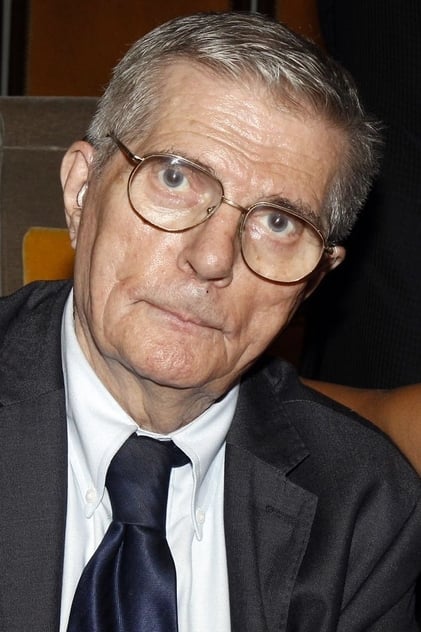
Jean-Christophe Averty
Born: August 6, 1928
Died: March 4, 2017
in Paris, France
Died: March 4, 2017
in Paris, France
Jean-Christophe Averty (6 August 1928 – 4 March 2017[1]) was a French television and radio director, and Satrap of the College of 'Pataphysique.
Many of his television productions from the 1960s were early examples of French video art. His studies were used in the following decades by the research groups of the French National Audiovisual Institute (INA).
Averty was born in Paris. A graduate of the IDHEC film school, he started in television in 1952 at the then French Television Office. He directed over five hundred programs for television and radio, across all disciplines: fiction, documentary, drama, variety, and jazz. His many awards include an Emmy award in the United States.
Averty was appointed Satrap of the College of 'Pataphysique in 1990, due to his fascination for Alfred Jarry and Pataphysique.
Averty made his reputation on his strong character, his taste for provocation and his sense for innovative television. His 1963 series The Green Grapes was infamous for a recurring sequence of a baby being put through a grater.
A keen connoisseur of jazz, Averty filmed the Jazz à Juan festival for many years. The pianist Martial Solal paid him a tribute in one of his compositions: Averty, c'est moi (Averty that's me).
Over 28 years, he hosted 1,805 episodes of his radio show Les Cinglés du music-hall, based on his own collection of jazz and variety 78s that he had bought in flea markets around the world. The show was cancelled in 2006 under Jean-Paul Cluzel's chairmanship of Radio France. The French section of the shows was based on notebooks entrusted to him by André Cauzard, filled with daily details of pre-war jazz music events.
Averty directed television shows where he applied his singular style to showcase the greatest francophone singers such as Françoise Hardy, Yves Montand, Johnny Hallyday, Sylvie Vartan, Juliette Greco, Georges Brassens, Dalida, France Gall, Serge Gainsbourg, Gilbert Bécaud, Guy Marchand, Léo Ferré, Tino Rossi, and Jean Sablon, and as well as foreign musicians such as Patty Pravo.
In 1969 Averty directed the TV movie Le Songe d'une nuit d'été, starring Claude Jade, Christine Delaroche and Jean-Claude Drouot, and filmed entirely in bluescreen.
His television creations are landmarks in their use of video as a mode of artistic expression. Averty made great use of characters filmed against a blue screen, overlaid on a drawn background. Examples are Sapeur Camembert, based on the eponymous work of Georges Colomb, and a production of Edmond Rostand's classic play Chantecler.
Averty was one of the last salaried directors of the French Production Company. In 2012, he entrusted the management, conservation and safeguarding of the rights of all of his television and radio works to the French National Audiovisual Institute (INA); nearly a thousand television programs on jazz, sports, fashion, variety and the theater.
Source: Article "Jean-Christophe Averty" from Wikipedia in English, licensed under CC-BY-SA 3.0.
Many of his television productions from the 1960s were early examples of French video art. His studies were used in the following decades by the research groups of the French National Audiovisual Institute (INA).
Averty was born in Paris. A graduate of the IDHEC film school, he started in television in 1952 at the then French Television Office. He directed over five hundred programs for television and radio, across all disciplines: fiction, documentary, drama, variety, and jazz. His many awards include an Emmy award in the United States.
Averty was appointed Satrap of the College of 'Pataphysique in 1990, due to his fascination for Alfred Jarry and Pataphysique.
Averty made his reputation on his strong character, his taste for provocation and his sense for innovative television. His 1963 series The Green Grapes was infamous for a recurring sequence of a baby being put through a grater.
A keen connoisseur of jazz, Averty filmed the Jazz à Juan festival for many years. The pianist Martial Solal paid him a tribute in one of his compositions: Averty, c'est moi (Averty that's me).
Over 28 years, he hosted 1,805 episodes of his radio show Les Cinglés du music-hall, based on his own collection of jazz and variety 78s that he had bought in flea markets around the world. The show was cancelled in 2006 under Jean-Paul Cluzel's chairmanship of Radio France. The French section of the shows was based on notebooks entrusted to him by André Cauzard, filled with daily details of pre-war jazz music events.
Averty directed television shows where he applied his singular style to showcase the greatest francophone singers such as Françoise Hardy, Yves Montand, Johnny Hallyday, Sylvie Vartan, Juliette Greco, Georges Brassens, Dalida, France Gall, Serge Gainsbourg, Gilbert Bécaud, Guy Marchand, Léo Ferré, Tino Rossi, and Jean Sablon, and as well as foreign musicians such as Patty Pravo.
In 1969 Averty directed the TV movie Le Songe d'une nuit d'été, starring Claude Jade, Christine Delaroche and Jean-Claude Drouot, and filmed entirely in bluescreen.
His television creations are landmarks in their use of video as a mode of artistic expression. Averty made great use of characters filmed against a blue screen, overlaid on a drawn background. Examples are Sapeur Camembert, based on the eponymous work of Georges Colomb, and a production of Edmond Rostand's classic play Chantecler.
Averty was one of the last salaried directors of the French Production Company. In 2012, he entrusted the management, conservation and safeguarding of the rights of all of his television and radio works to the French National Audiovisual Institute (INA); nearly a thousand television programs on jazz, sports, fashion, variety and the theater.
Source: Article "Jean-Christophe Averty" from Wikipedia in English, licensed under CC-BY-SA 3.0.
Movies for Jean-Christophe Averty...
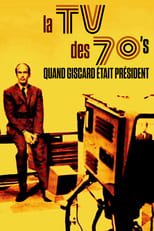
Title: La TV des 70's : Quand Giscard était président
Character: Self (archive footage)
Released: January 7, 2022
Type: Movie
In May 1974, Valéry Giscard d'Estaing became President of the Republic and wanted to bring about a new era of modernity. One of his first decisions was to break up the ORTF with the creation of three new television channels: TF1, Antenne 2 and FR3. Three new public channels but autonomous and competing. It is a race for the audience which is engaged then, and from now on the channels will make the war! This competition will give birth to a real golden age for television programs, with variety shows in the forefront. The stars of the song are going to invade the living rooms of the French for their biggest pleasure. This unedited documentary tells the story of the metamorphosis of this television of the early 1970s, between freedom of tone, scandals, political intrigues and programs that have become mythical.

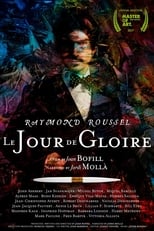
Title: Raymond Roussel: The Day of Glory
Character: Self
Released: April 20, 2017
Type: Movie
A tortuous journey, in the company of the Spanish painter Salvador Dalí, around the figure of the enigmatic and visionary French poet Raymond Roussel (1877-1933).


Title: Les trésors cachés des variétés
Character: Self
Released: February 3, 2017
Type: Movie

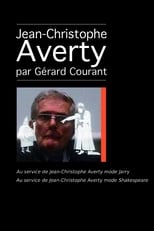
Title: Au service de Jean-Christophe Averty mode Jarry
Character: Self
Released: July 3, 2016
Type: Movie

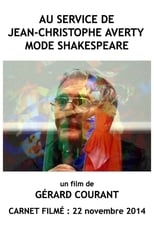
Title: Au service de Jean-Christophe Averty mode Shakespeare
Character: Self
Released: July 3, 2016
Type: Movie


Title: Comment devenir cinéaste sans se prendre la tête
Character: Le cinéaste
Released: January 1, 1995
Type: Movie

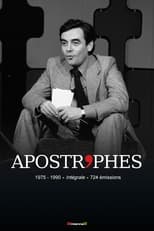
Title: Apostrophes
Character: Self
Released: January 10, 1975
Type: TV
Apostrophes was a live, weekly, literary, prime-time, talk show on French television created and hosted by Bernard Pivot. It ran for fifteen years (724 episodes) from January 10, 1975, to June 22, 1990, and was one of the most watched shows on French television (around 6 million regular viewers). It was broadcast on Friday nights on the channel France 2 (which was called "Antenne 2" from 1975 to 1992). The hourlong show was devoted to books, authors and literature. The format varied between one-on-one interviews with a single author and open discussions between four or five authors.




Title: La Lucarne magique
Character: Une personnalité
Released: October 4, 1971
Type: Movie





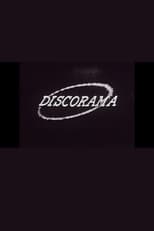

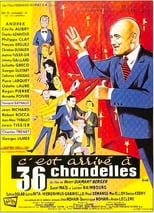
Title: It Happened on the 36 Candles
Character: Assistant director (uncredited)
Released: October 16, 1957
Type: Movie
Rejecting the union of her daughter Brigitte with a modest worker, Madame Magnin invents an adultery for the lover, then introduces Brigitte to a good-looking man working on the famous RTF entertainment show 36 Chandelles. The show ultimately seals the reunion of the two estranged young lovers. The story features a parade of music-hall stars from the era: Charles Trenet, Charles Aznavour, Georges Guétary, Juliette Gréco, Roger Pierre and Jean-Marc Thibault, Fernand Raynaud, Georges Ulmer and many more.


Title: Bambi Awards
Character: Self
Released: January 1, 1948
Type: TV
The Bambi, often called the Bambi Award and stylised as BAMBI, is a German award presented annually by Hubert Burda Media to recognize excellence in international media and television to personalities in the media, arts, culture, sports, and other fields "with vision and creativity who affected and inspired the German public that year", both domestic and foreign. First held in 1948, it is the oldest media award in Germany. The trophy is named after Felix Salten's book Bambi, A Life in the Woods and its statuettes are in the shape of the novel's titular fawn character. They were originally made of porcelain until 1958, when the organizers switched to using gold, with the casting done by the art casting workshop of Ernst Strassacker in Süßen.
